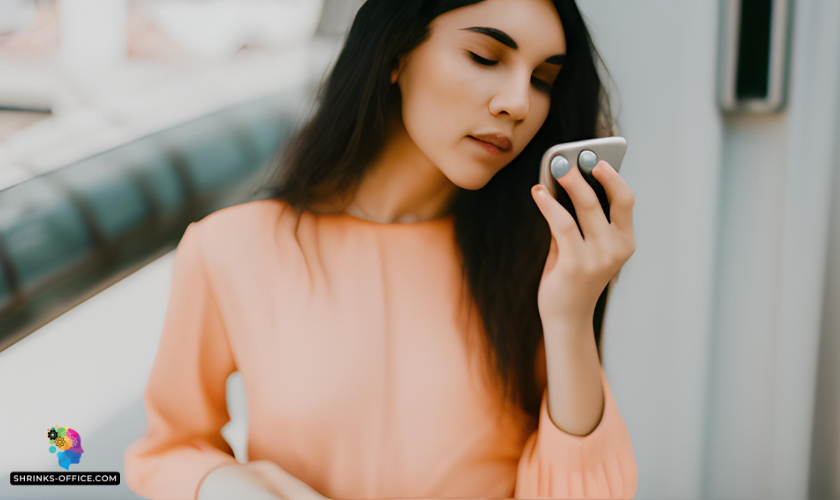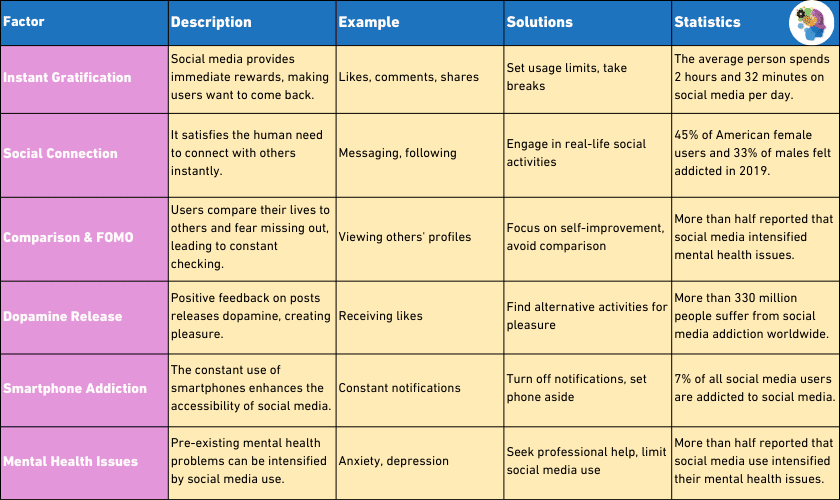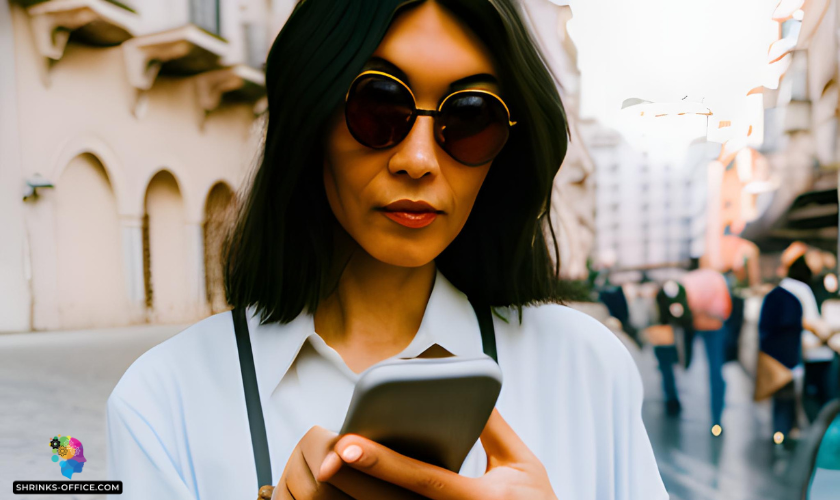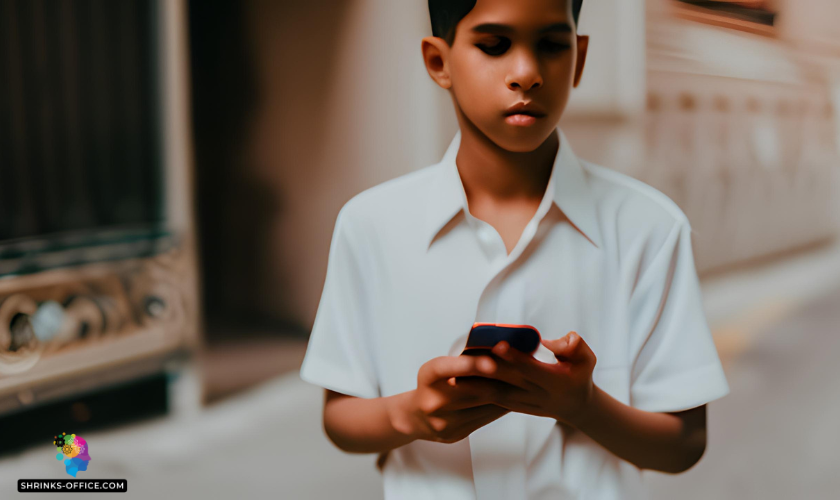Social Media Addiction: Recognizing the Signs and How to Overcome It
Social media addiction is when someone becomes obsessed with using social media platforms such as Facebook, Instagram, Twitter, and YouTube.
- Instant gratificationu003cbru003e- Fear of missing out (FOMO)u003cbru003e- Social comparisonu003cbru003e- Social connectionu003cbru003e- Validation and self-esteemu003cbru003e- Boredom or escapismu003cbru003e- Habit formationu003cbru003e- Algorithmic reinforcement
- Preoccupationu003cbru003e- Excessive useu003cbru003e- Mood changesu003cbru003e- Neglecting personal relationshipsu003cbru003e- Hiding usageu003cbru003e- Failed attempts to cut bacu003cbru003e- Feeling restless, anxious, or agitated when not using social mediau003cbru003e- Loss of interest in other activities
- Therapyu003cbru003e- Digital detoxu003cbru003e- Set boundariesu003cbru003e- Mindfulness and stress managementu003cbru003e- Develop alternative coping strategiesu003cbru003e- Build offline connectionsu003cbru003e- Monitor progressu003cbru003e- Professional guidanceu003cbru003e- Support groups
u003cimg class=u0022wp-image-882u0022 style=u0022width: 150px;u0022 src=u0022http://shrinks-office.com/wp-content/uploads/2023/03/Social-Media-Product.pngu0022 alt=u0022u0022u003eu003cbru003eu003ca href=u0022https://amzn.to/3m14MRPu0022 target=u0022_blanku0022 rel=u0022noopeneru0022 title=u0022u0022u003eStop Scrolling: 30 Days to Healthy Screen Time Habitsu003c/au003e
Social media apps let us chat with people worldwide. But using them too much is bad for our health. This is known as addiction.
In this blog, we talk about social media addiction and its bad effects on our mind and body. We share a list of signs to look out for and ways to treat it. This includes therapy, medicines, and taking care of yourself. If you think you're addicted to social media, check out our other blog. It gives helpful steps to break free from this addiction.
In that blog, we stress how to over come social media addiction, taking breaks, and not comparing yourself to others. We also explore how this addiction hurts our mental health. We suggest other fun activities to do instead of spending time on social media.
What is a social media addiction?
Social media addiction happens when a person can't stop using platforms like Facebook, Instagram, Twitter, and YouTube.
People with this addiction spend hours on these sites. They scroll through feeds and post updates, ignoring real-life tasks. This issue is often seen in teens and young adults.

Why is social media so addictive?
Social media is so addictive because it gives our brains instant rewards. It satisfies our need for quick pleasure and connection. When people get likes and comments, they feel validated. This makes them want to post more to get more attention. [1]
Understanding the Psychology Behind Social Media Addiction
Social media addiction is complicated and linked to the human mind. Knowing the mental reasons for this addiction helps us understand why it's common and hard to beat. Here are important parts of the mental side of social media addiction:
- The need for social connection: We all need to connect with others because we are social beings. Social media makes this easy. It lets us quickly reach out to friends, family, and even strangers anytime. This always-available connection is hard to resist because it feeds our need to be social.
- The fear of missing out (FOMO): Social media shows the best parts of other people's lives. This can make us feel jealous or afraid of missing out on fun events. This fear makes people check their social media over and over, leading to addiction.
- Validation and self-esteem: Social media gives quick feedback with likes, comments, and shares. This can make a person feel good about themselves. Getting this fast praise can be addictive. It makes people feel valued and successful, so they keep posting to get more approval from others online.
- Social comparison: People naturally compare themselves to others. Social media makes this even easier. It can make us feel not good enough and push us to make our online image better. This need to compete and show our best selves online can lead to addiction.
- The role of dopamine: Dopamine is a brain chemical linked to pleasure. It's part of the brain's reward system. When we get positive feedback on social media, our brain releases dopamine, making us feel good. Over time, the brain wants more dopamine "hits," making us use social media a lot.[2]

Pros of understanding the psychology behind social media addiction:
- Understanding the mental reasons for addiction helps people know their triggers and find ways to beat them.
- This knowledge can make treatments for social media addiction work better.
Cons of understanding the psychology behind social media addiction:
- Only looking at mental reasons can miss other things that cause addiction, like social pressure and ads.
- Focusing too much on the mental side can lead to blaming the person with the addiction. It doesn't consider the role of the social media platforms themselves.[2]

How does a social media addiction have a negative impact on you?
Mental health
- Can make you anxious or depressed
- Low self-esteem can happen when you think that others on social media have a better life than you do
- Decreased productivity
- Poor relationships
- You're likely to develop a fear of missing out [FOMO]
- Isolation
- You're likely to develop a social anxiety disorder
Physical health
- It can mess up your sleeping patterns
- Eye strain
- Headaches
- Poor posture
- Reduced physical activity [2] [3] [4]
How Social Media Destroyed My Life - Personal Stories
u/throwawaynosurf11
He did it again, spending hours on social media despite his resolution to stay off the phone. While on vacation, he couldn't resist checking Instagram to see what others were up to. A wave of depression hit him; social media was a mental drain. Scrolling through posts of acquaintances, old classmates, and colleagues enjoying life, he felt an emptiness. He felt like an outsider, rarely posting and with few friends.
Witnessing others interact on Instagram intensified his sense of isolation.
He felt excluded, different, not laying his life bare online. The addiction to social media was overpowering; he couldn't even eat breakfast without his phone. He was trapped in this cycle, desperate for an escape but finding it hard to put the phone away, a prisoner to the constant pull of virtual connections.
Aly Walansky
Aly Walansky found herself ensnared in the digital world nearly a decade ago, with social media consuming her life. She wasn’t just an introverted girl lost in the online space; she was a focused career woman, or so she rationalized. As an online editor, being plugged in 24/7 seemed justified. But the convenience of sophisticated apps and the digital implosion turned dangerous, especially for someone self-employed, working from a small studio apartment.
Social media transformed Aly into an extroverted introvert, wearing masks crafted for the online world. The addiction was unveiled during a computer glitch over a holiday weekend. Panic ensued. The restlessness, the attachment to the internet, hinted at an escape from life. Aly pondered the necessity of boundaries, a separation between social and work internet time, to regain control from the clutches of an iPhone-dominated existence.

Signs of social media addiction
- Losing track of time
- Ignoring real-life relationships
- Becoming irritable when away from your phone
- Feeling the need to constantly check notifications
- Having difficulty concentrating on tasks
- Neglecting other activities
- Becoming anxious when not connected to social media
- Spending increasing amounts of time online
- Feeling the need to be “liked”
- Lying about the amount of time spent online
- Becoming easily distracted
- Becoming hostile when asked to stop
- Obsessing over likes and views
- Feeling depressed when you don’t get enough “likes”
- Developing a fear of missing out (FOMO) on what friends are doing online [5]
Treatments options for a social media addiction
Therapy
- CBT helps people identify thoughts that lead to too much social media use.
- DBT is a therapy that helps people be more aware and control their feelings better.
- Group therapy is when social media users gather to share their struggles with using social media too much.
- Family therapy can help people understand why they overuse social media. [6] [7]
Medications
- Antidepressants help them if they have both depression or anxiety and a problem with using social media excessively. [8]
- Mood stabilizers are given to people with bipolar disorder or other mental health problems that can lead to social media overuse. [9]
Self-care strategies
- Limit your social media usage or remove social media from your phone
- Turn your phone off during family time, meals, or work (you can also install an app that only allows phone calls)
- Practice mindfulness
- Start engaging in a hobby that doesn't involve tech
- Exercise
- Spend time with friends and family [10]

How Parents Can Help Their Children Overcome Their Social Media Addiction
It's important for parents to notice and deal with their kids' social media addiction. It can affect their mental health and well-being for a long time. Here are ways parents can help their kids get past social media addiction:
Open communication
Begin by talking openly and honestly with your child about how much they use social media. Ask how they feel and if they think it’s a problem. Listen without judging and let them share their thoughts and feelings safely.
Set boundaries
Establish clear rules and guidelines for social media use, including time limits, specific times of day when it's allowed, and the types of content your child is allowed to access. Be consistent in enforcing these boundaries and explain the reasons behind them.
Monitor usage
Keep track of your child's social media use and the platforms they're on. Consider using parental control apps or software to help manage their online activity.
Encourage offline activities
Help your child find hobbies that don't use technology, like sports, arts, or volunteering. This can help them be more well-rounded and not depend on social media for fun or approval.
Model healthy behavior
Be a good role model by controlling your own social media use and showing healthy online habits. Focus on spending time with your child in person and avoid using your phone during family moments.
Educate your child
Tell your child about the dangers and bad effects of using social media too much. This includes cyberbullying, privacy issues, and mental health problems. Help them learn why it’s important to have balance and not go overboard online.
Foster a strong support system
Encourage your child to develop strong connections with friends and family members outside of social media. This can help them feel less reliant on online validation and provide a more robust support network in times of need.
Promote healthy coping strategies
Teach your child healthy ways to deal with stress and bad feelings. They can try deep breathing, mindfulness, or exercise. This helps them find better ways to feel better instead of using social media for comfort.
Seek professional help
If social media addiction is hurting your child's mental health, grades, or friendships, think about getting help from a therapist or counselor. Look for one who knows about digital addiction or young people's mental health.
Be patient and supportive
Overcoming a social media addiction takes time and effort. Be patient with your child as they work through the process and offer your support and encouragement along the way. Celebrate their progress and remind them that setbacks are a normal part of the journey. [12]
Are you or someone you know struggling with social media addiction? Our latest article, "How To Break Your Social Media Addiction," offers valuable insights and practical steps to regain control over your digital life.
Conclusion
Social media addiction can have negative impacts on both your mental and physical health. It's important to establish boundaries and limit your scrolling time, and to make an effort to spend time with loved ones instead. If you find that you are struggling to maintain a healthy balance, don't hesitate to reach out to an online therapist.
We encourage you to join the conversation below and share your thoughts and experiences with social media addiction. Your comments can provide support and encouragement to others who may be facing similar challenges.
FAQ
What should I do if my child is addicted to social media?
Talk to your child about their use of social media and help them develop strategies for limiting their usage. It may also be helpful to find activities that engage them in offline activities, and seek professional help from a mental health provider if needed.
What are some healthy alternatives to using social media?
There are many healthy alternatives instead of using social media, such as engaging in hobbies, reading books or magazines, practicing mindfulness exercises, exercising, or spending time with friends and family. It is important to find activities that do not involve tech if you want to break away from the computer screen.
References
- University of Tennessee: Social Media Addiction and its Implications for Communication
- Recovered: Social Media Addiction
- Social Media Addiction and the Loneliness Epidemic
- UoN: Impact of Social Media on Youth Mental Health: Statistics, Tips & Resources
- Walden University: Signs of Unhealthy Social Media Habits Mental Health Practitioners Should Spot
- Academia: Life satisfaction: A key to managing internet & social media addiction
- University of North Carolina: Kicking Social Media Addiction
- Drugs: Antidepressants
- Medical News Today: What to know about mood stabilizers?
- King University Online: How to Combat the Negative Effects of Social Media
⚠️ Disclaimer: The content of this video is for informational purposes only and is not a substitute for professional medical advice or treatment. Consult a qualified health professional for any medical concerns.